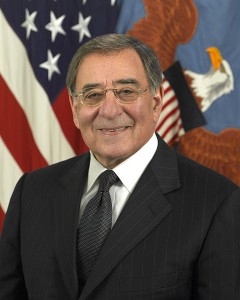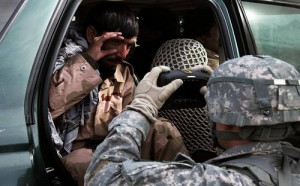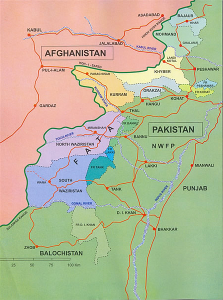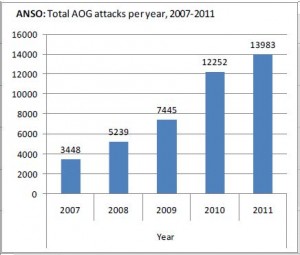While Washington Sniffs the Generals’ Panties, Afghan Peace Talks Begin to Show Progress
With General John Allen now floating in some sort of purgatory where he has been tainted by figures in the Petraeus scandal, the “orderly” transition planned for Allen to step up to commanding NATO and General John Dunford to move up to replace Allen in Afghanistan is stalled at least in part. And while Washington has come to such a complete halt over this scandal that Howard Kurtz may well have taken an interest in a penis or two that may have voted Republican, leaders in Afghanistan and Pakistan have taken advantage of the distraction in Washington to take concrete steps toward the kind of political reconciliation that will be essential once US forces have been (at least mostly) withdrawn from the area.
From the AP story carried by the Washington Post:
Pakistan freed several Taliban prisoners at the request of the Afghan government Wednesday, a move meant to facilitate the process of striking a peace deal with the militant group in neighboring Afghanistan, Pakistani officials said.
The release of the prisoners — described as mid- and low-level fighters — is the most encouraging sign yet that Pakistan may be willing to help jumpstart peace talks that have mostly gone nowhere, hobbled by distrust among the major players involved, including the United States.
/snip/
Wednesday’s release of the Taliban militants came in response to a personal request by Salahuddin Rabbani, the head of an Afghan government council for peace talks with the Taliban, said a Pakistani government official and an intelligence official. The officials spoke on condition of anonymity because they were not authorized to talk to the media about the release.
We get more from Reuters:
Afghan officials have suspected that Pakistan has been holding Afghan Taliban members in jail to retain some control over peace efforts and have a say in any settlement.
Those in detention include former Justice Minister Mullah Nooruddin Toorabi and Mullah Jahangirwal, former secretary of Taliban leader Mullah Mohammad Omar and Allahdat Tayab, an ex-deputy minister, Afghan High Peace Council officials say.
“We have asked Pakistan to release them because they were the policy makers of the Taliban and close aides to Mullah Omar,” Habibullah Fawzi, a senior member of the Afghan peace team, told Reuters.
Their release could encourage a number of Taliban commanders and fighters to join peace efforts, he said. Afghan embassy officials in Islamabad said the names of about 10 Afghan Taliban militants had been floated.
We learn from Dawn that the talks will continue today:
Talks between the peace delegation led by Mr Rabbani and Pakistani officials would continue on Wednesday when the two sides are expected to come up with a joint statement on the progress made by them.
A Pakistani official, who had been briefed on the talks, told Dawn that “significant progress has already been made”.
The release of Taliban detainees in Pakistan has been a longstanding Afghan demand for catalysing the slow moving process.
A keen follower of the negotiations, who didn’t want to be named, said the release of prisoners was a positive step, which would provide the right environment for reconciliation.
Who could have guessed that getting all of Washington distracted by a tawdry sex scandal could have set just the right conditions for significant peace talks to break out? There are even hints from Khaama that this breakout of peace talks might even expand to include the Haqqani network.
The old adage that “fighting for peace is like fucking for virginity” seems to have been turned on its side here. Even though it may have been under his desk, David Petraeus and Paula Broadwell appear to have been fucking for peace, since their affair has disengaged the US war machine long enough that those who must make peace once we are gone have decided to start the process ahead of schedule.




